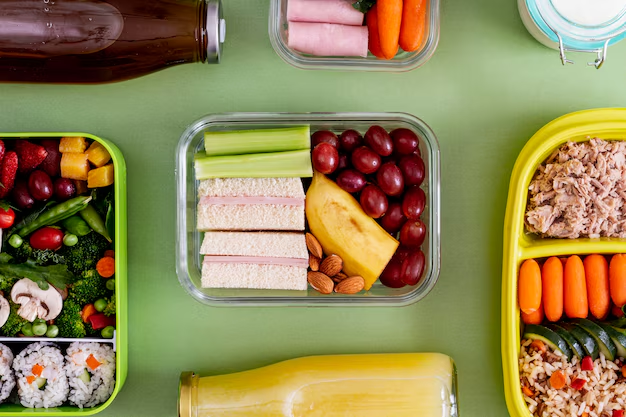How Long Is Your Cooked Meat Good in the Fridge? A Complete Guide to Food Storage and Shelf Life
For many, meal prepping is a time saver and a commitment to eating healthier. However, knowing how long cooked meat lasts in the refrigerator can be both confusing and critical for maintaining food safety. Let’s dive into the various facets of storing cooked meat, providing you with a clear picture of how long you can safely keep it in your fridge.
🕒 Understanding Timeframes: How Long Does Cooked Meat Last?
Cooked meat generally lasts between 3 to 4 days in the refrigerator. This timeline strikes a balance between preserving flavor and maintaining safety. However, the exact duration can vary based on the type of meat and how it's stored.
🚨 Why the Timelines Matter
Eating meat past its safe storage time can increase the risk of foodborne illnesses. Bacteria such as Salmonella and Listeria can flourish in improperly stored food, leading to unwanted health concerns.
Types of Cooked Meat
Let's break down the common types of cooked meat and their recommended fridge life:
- Poultry (Chicken and Turkey): 3–4 days
- Beef and Pork: 3–4 days
- Lamb and Veal: 3–4 days
- Cooked Fish and Shellfish: 2–3 days
- Ground Meats (Beef, Pork, Turkey, Chicken): 1–2 days
- Cured Meats (Ham, Bacon): 3–5 days
- Casseroles and Dishes with Meat: 3–4 days
🥶 Best Practices for Storing Cooked Meat
Proper storage can maximize the shelf life of cooked meat. Here are practical tips:
❄️ Cooling Down
- Rapid Cooling: Let your cooked meat cool slightly at room temperature before placing it in the fridge. Aim for a cooling time of no more than 2 hours.
- Portion Control: Divide large quantities into smaller portions, making them easier to cool and store efficiently.
📦 Packaging and Storing
- Sealed Containers: Use airtight containers or heavy-duty aluminum foil/wrap to prevent air exposure and contamination.
- Placement: Store your meat on the lower shelves of the fridge, away from raw foods, to avoid cross-contamination.
- Labeling: Mark containers with the date of storage to keep track of freshness.
🤔 Identifying Spoilage
Understanding spoilage signs can prevent unfortunate culinary experiences. Here’s what to watch for:
👃 Smell
- Off-Putting Odor: Trust your nose. If your meat develops a sour or rancid smell, it's time to discard it.
👀 Appearance
- Color Changes: Meat that turns an unusual color, like gray or green, should be thrown away.
- Texture: A sticky or slimy film on the meat surface is a telltale sign of spoilage.
🔄 Extending Shelf Life: Can Freezing Help?
Freezing cooked meat is a good way to prolong its usability. Most cooked meats can last 2 to 6 months in the freezer without significant loss of quality.
❄️ Freezing Tips
- Flash Freezing: Spread meat pieces on a tray in the freezer before putting them in containers to avoid them sticking together.
- Vacuum Sealing: If possible, vacuum seal meats to preserve texture and prevent freezer burn.
- Labeling: Always label with the date of freezing to keep track of your food inventory.
🥗 Meal Planning and Safety
Safe meal planning is all about preparation and knowledge. Here’s a quick guide to help you:
📝 Meal Prepping
- Scheduled Cooking: Cook perishable items closer to when you plan to eat them.
- Rotate Meals: The first in, first out method ensures older meals are eaten first to reduce waste.
🕒 Reheating Rules
- Temperature: Reheat cooked meat to at least 165°F (74°C) to ensure all bacteria are killed.
- Even Heating: Stir or rotate food to ensure it heats evenly throughout.
🍴 Practical Tips for Real-Life Application
Database of Knowledge 🗂️
Maintain a weekly overview to manage what goes in and out of your fridge. A structured plan supports better food safety and reduces waste.
Key Takeaways:
- ⏳ Day Tracker: Develop a habit of tracking how long items have been stored.
- ❌ Minimize Wastage: By knowing shelf life, you can plan meals to use items efficiently, reducing waste.
- ⭐ Food Safety First: Understanding and practicing recommended storage guidelines protects both health and satisfaction in your meal planning process.
The Bottom Line
Knowing how long cooked meat lasts in your refrigerator, along with storage best practices, can empower you to manage your meals more effectively. In so doing, you contribute to safe eating habits in your household, all while reducing waste and making your meal planning efforts more efficient. Remember, when in doubt, it’s better to err on the side of caution and discard any food that has passed its prime. Your health and well-being are always worth more than a questionable meal!

